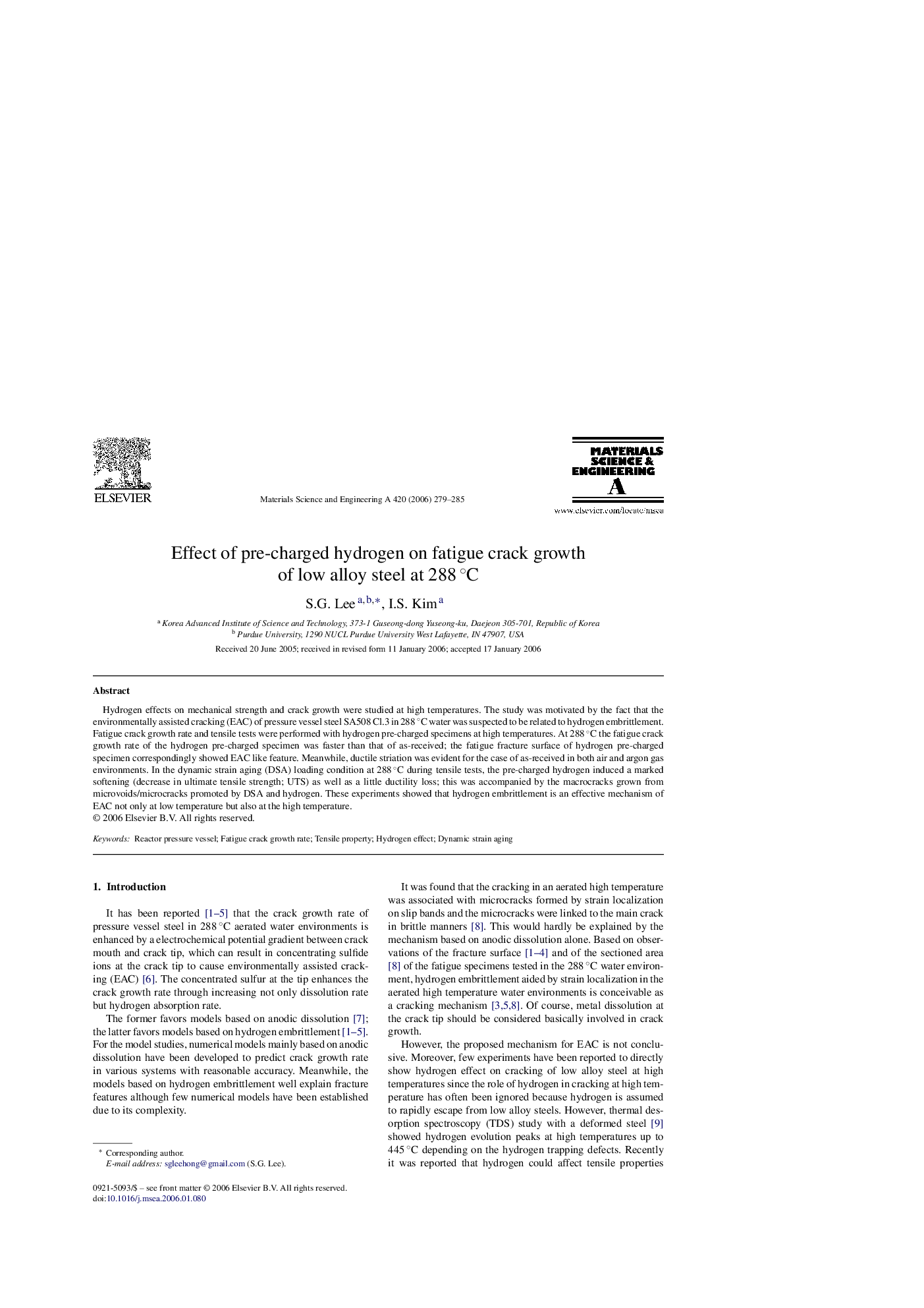| Article ID | Journal | Published Year | Pages | File Type |
|---|---|---|---|---|
| 1585878 | Materials Science and Engineering: A | 2006 | 7 Pages |
Hydrogen effects on mechanical strength and crack growth were studied at high temperatures. The study was motivated by the fact that the environmentally assisted cracking (EAC) of pressure vessel steel SA508 Cl.3 in 288 °C water was suspected to be related to hydrogen embrittlement. Fatigue crack growth rate and tensile tests were performed with hydrogen pre-charged specimens at high temperatures. At 288 °C the fatigue crack growth rate of the hydrogen pre-charged specimen was faster than that of as-received; the fatigue fracture surface of hydrogen pre-charged specimen correspondingly showed EAC like feature. Meanwhile, ductile striation was evident for the case of as-received in both air and argon gas environments. In the dynamic strain aging (DSA) loading condition at 288 °C during tensile tests, the pre-charged hydrogen induced a marked softening (decrease in ultimate tensile strength; UTS) as well as a little ductility loss; this was accompanied by the macrocracks grown from microvoids/microcracks promoted by DSA and hydrogen. These experiments showed that hydrogen embrittlement is an effective mechanism of EAC not only at low temperature but also at the high temperature.
